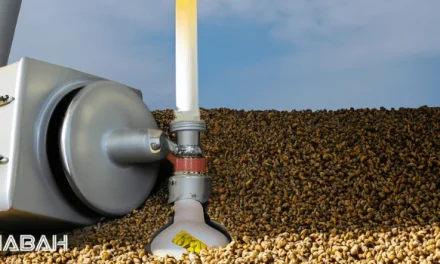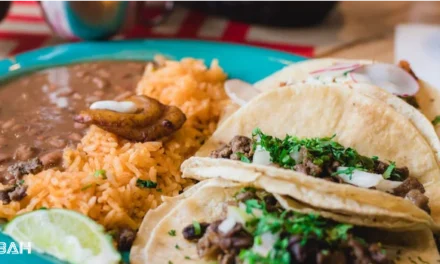As a food enthusiast and a firm believer in the importance of halal dietary choices, I embarked on a fascinating journey to uncover the halal status of pizza. In this comprehensive guide, I will delve into the intricacies of halal certification, the religious perspectives surrounding consuming pizza, and provide a definitive answer to whether pizza can be enjoyed with confidence by those adhering to halal principles.
Why Most Pizzas Don’t Cut It
Pizza is one of the most beloved foods around the world. The classic Italian dish has become a global phenomenon, with pizzerias found in virtually every city on Earth. However, for Muslims who follow Islamic dietary laws, the question often arises: Is pizza halal?
Halal is an Arabic word that means “permissible” or “lawful” in Islam. When it comes to food:
- Halal foods are those that are allowed under Islamic dietary guidelines as described in the Quran.
- Haram foods are prohibited for Muslims to eat.
For a food to be halal, it must:
- Not contain any pork or pork by-products
- Not contain blood or blood by-products
- Be made with meat from animals slaughtered in the Islamic method (zabihah).
For many Muslims, only eating halal foods is an important part of their faith. Some key stats on halal foods:
- The global halal food market is estimated at $1.4 trillion.
- 73% of Muslims say they always or try to always eat halal.
With pizza’s worldwide popularity, including in Muslim-majority nations, the question naturally arises if traditional pizza made at most pizzerias can be considered halal. There is debate within the Muslim community on this issue. Some argue that typical pizza contains non-halal ingredients, while others believe that pizza can be made halal. This article will explore this debate in detail.
Ingredients that Make Pizza Haram
There are several common ingredients used in conventional pizza recipes that would make it haram, or impermissible, for observant Muslims to eat. These include:
Pork-Derived Products
- Pizza chains often use pork-derived gelatin to give the cheese a better melt and stretch.
- Gelatin is commonly made from pork skins, tendons, ligaments and bones.
- Consuming any pork product is haram in Islam.
Alcohol
- Many pizza doughs, especially frozen ones, contain alcohol as an ingredient.
- Alcohol is considered both haram and an intoxicant in Islam.
- Some pizzas are cooked with wine or beer for flavor.
- Alcohol does not completely burn off during cooking.
Improperly Slaughtered Meat
- Pepperoni and other pork-free meat toppings may still be haram if not slaughtered in the Islamic method.
- Islam requires all meat to be slaughtered by a Muslim reciting a prayer and minimizing suffering of the animal.
- Meat not slaughtered this way is considered haram, even if it is lamb, chicken, or beef.
So in summary, the main ingredients that can make normal pizza haram include pork, alcohol, and improperly slaughtered meat.
Views on Whether Common Pizza is Halal
There are differing perspectives within the Muslim community regarding the halal status of conventional pizza served at most pizza chains:
Majority Opinion: Pizza is Not Halal
- The majority view seems to be that normal pizza should not be considered halal.
- The consensus is that “standard pizza is not halal.”
- Reasons include use of pork-derived ingredients, alcohol, and doubt about the slaughter method of meat toppings.
Minority Opinion: It Depends on Ingredients
- Some argue pizza can be halal depending on specifics of how it is made.
- “It depends on the content of the pizza.”
- If care is taken to avoid haram ingredients, these Muslims believe pizza can be halal
So in summary, there is evidence of different perspectives within the Muslim community on the halal status of regular pizza, ranging from it not being halal at all to being permissible depending on circumstances.
Options for Halal Pizza
For Muslims seeking halal pizza, there are a few options:
Halal Pizza Restaurants
-
There are some pizza chains that offer certified halal pizzas, such as:
- PizzaExpress: Offers halal chicken and vegetarian pizzas.
- London Pizza Depot: Has certification from Halal Monitoring Committee.
-
Many major cities also have smaller halal pizzerias.
- London has many independent halal pizza shops.
Make Halal Pizza at Home
- Using halal ingredients, pizza can easily be made at home.
- The Halal Life provides a recipe for making vegetarian halal pizza from scratch.
Custom Ordering
- Some regular pizza places allow for halal substitutions:
- As ISA Halal notes, you can request no pork-derived ingredients.
- Can also order vegetarian cheeses and toppings.
Availability of Halal Pizza in Muslim Communities
The availability of halal pizza options depends greatly on location and proximity to Muslim populations:
Muslim-Majority Countries
- In countries like Malaysia, Turkey, Pakistan etc., halal pizza is widely available.
- “In Muslim countries, there are many pizza outlets that are certified halal.”
- Global chains like Pizza Hut and Domino’s offer halal menus.
Western Cities with Large Muslim Populations
- Cities like London, New York, and Toronto have seen growing halal pizza options.
- As Muslim populations grow in the West, so have halal restaurants of all cuisines.
Small Towns and Rural Areas
- In areas without significant Muslim populations, halal pizza is much harder to find.
- May need to stick to national chains with halal options like Pizza Hut.
- Can try custom ordering from regular pizzerias.
So in summary, access to halal pizza is greatest in Muslim-majority nations and large cosmopolitan cities in the West, while more limited in small towns and rural regions.
Conclusion
In summary, there is an active discussion within the worldwide Muslim community about whether conventional pizza served at most pizzerias can be considered halal. The key points are:
-
Halal dietary laws prohibit consumption of pork, alcohol, improperly slaughtered meat and other ingredients.
-
Common pizza recipes often include haram ingredients like pork-derived gelatin, alcohol in the dough, and questionable meat toppings.
-
However, with the right substitutions, including halal meats, vegetarian cheeses and no alcohol, pizza can conform to Islamic guidelines.
-
Opinions differ on whether standard pizza is halal, with the majority saying it is not, a minority arguing it depends on specifics, and some allowing flexibility for Muslims living in non-Muslim countries.
-
Muslims wanting halal pizza have options like halal-certified restaurants, custom orders, and making their own at home. Availability though depends on access to Muslim populations.
So in conclusion, while the debate continues, there are paths for Muslims who wish to enjoy halal pizza, especially as demand grows both in the Muslim world and the West. With care and effort, traditional pizza can be adjusted to adhere to Islamic dietary laws.





